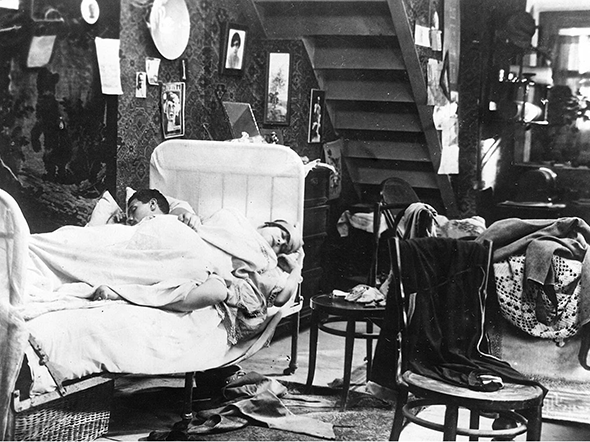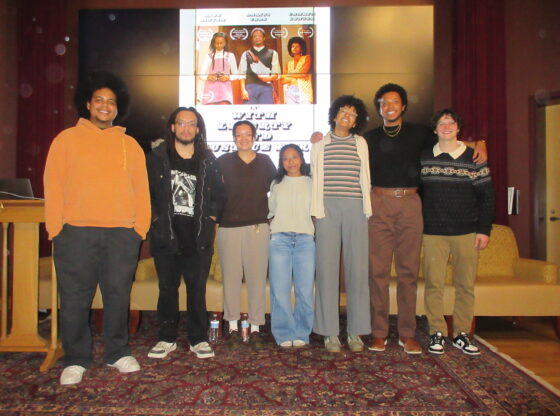From April 24 through 26, DU hosted the Fourth Denver Silent Film Festival in Davis Auditorium. Over the course of the weekend, 18 silent films with release dates ranging from 1912 to 1927 were shown, accompanied by live music.
These films were presented in proper old-school fashion—a reel projector was set up among the auditorium seats, creating a nostalgic whirring sound throughout the films. This raw set-up combined with the live scores gave a life and intimacy to the films that is often lost in modern movies.
The festival began Friday night with a showing of Raoul Walsh’s “The Thief of Bagdad,” a 1924 film loosely adapted from “One Thousand and One Nights” starring famous Denver native Douglas Fairbanks (“Robin Hood” and “The Mark of Zorro”) as a thief who falls in love with the Caliph’s daughter. The Mont Alto Motion Picture Orchestra provided a soaring live soundtrack to the swashbuckling, magic-filled tale. The movie was highly entertaining with a story that was easy to follow, proving that these old films stand the test of time. Part of the humor of the film was due to the amusing special effects of early films, such as in magical scenes depicting hilarious deep sea monsters or a horse flying through the clouds.
Saturday was kicked off by a conversation with Richard J. Meyer, winner of the Career Achievement Award and David Shepard, the film festival’s advisor and archivist. Following the conversation, they showed a series of five shorts by D.W. Griffith, the revolutionary and highly controversial creator of “The Birth of a Nation,” which was screened Sunday evening.
Other films that day included the poetic 1927 film “Berlin, Symphony of a Great City” by Walter Ruttman, the sinister drama “Menilmontant” (1926) by Dimitri Kirsanoff and the Moscow love triangle of “Bed and Sofa” (1927) by Abram Room.
Music was provided by pianist Hank Troy, Music Master Class students from the University of Colorado-Denver and University of Denver orchestras (led by world-renowned musician and composer Donald Sosin) and the Mont Alto Motion Picture Orchestra.
Sunday opened with a light-hearted collection of short comedies, accompanied by Hank Troy’s jazzy piano. The 1920s comedy still holds up—these shorts had the crowd in stitches, due to the likes of famous actors such as Harold Lloyd and Charlie Chaplin.
Conversely, D.W. Griffith’s “The Birth of a Nation” (1915) played afterward (accompanied by Rodney Sauer and Hank Troy), which follows two families in the Civil War and Reconstruction era. The film is extremely controversial due to its racist depiction of black men (some of them white actors in blackface) and the heroic portrayal of the Ku Klux Klan.
The festival didn’t shy away from the topic, addressing the controversy in a discussion following the film. This discussion called into question the paradox of the movie, which lies in its illustration of art’s ability to make the horrific beautiful, as well as the impact of watching the film today.
The festival wrapped up with “The Student Prince of Old Heidelberg” (Ernst Lubitsch, 1927) and “The Big Parade” (King Vidor, 1925).
As festival director Howie Movshovitz put it, these films “pertain to human life now as well as when the films were new.” This festival supports the notion that silent films are never truly out of date and continue to resonate with audiences to this day. Stories told at the beginning of film history are no different in content to those told through today’s technology.
For an entertaining and thought-provoking trek through film history, be sure to give silent films a shot. Keep your eyes open for more of Denver Silent Film Festival events in the future.











